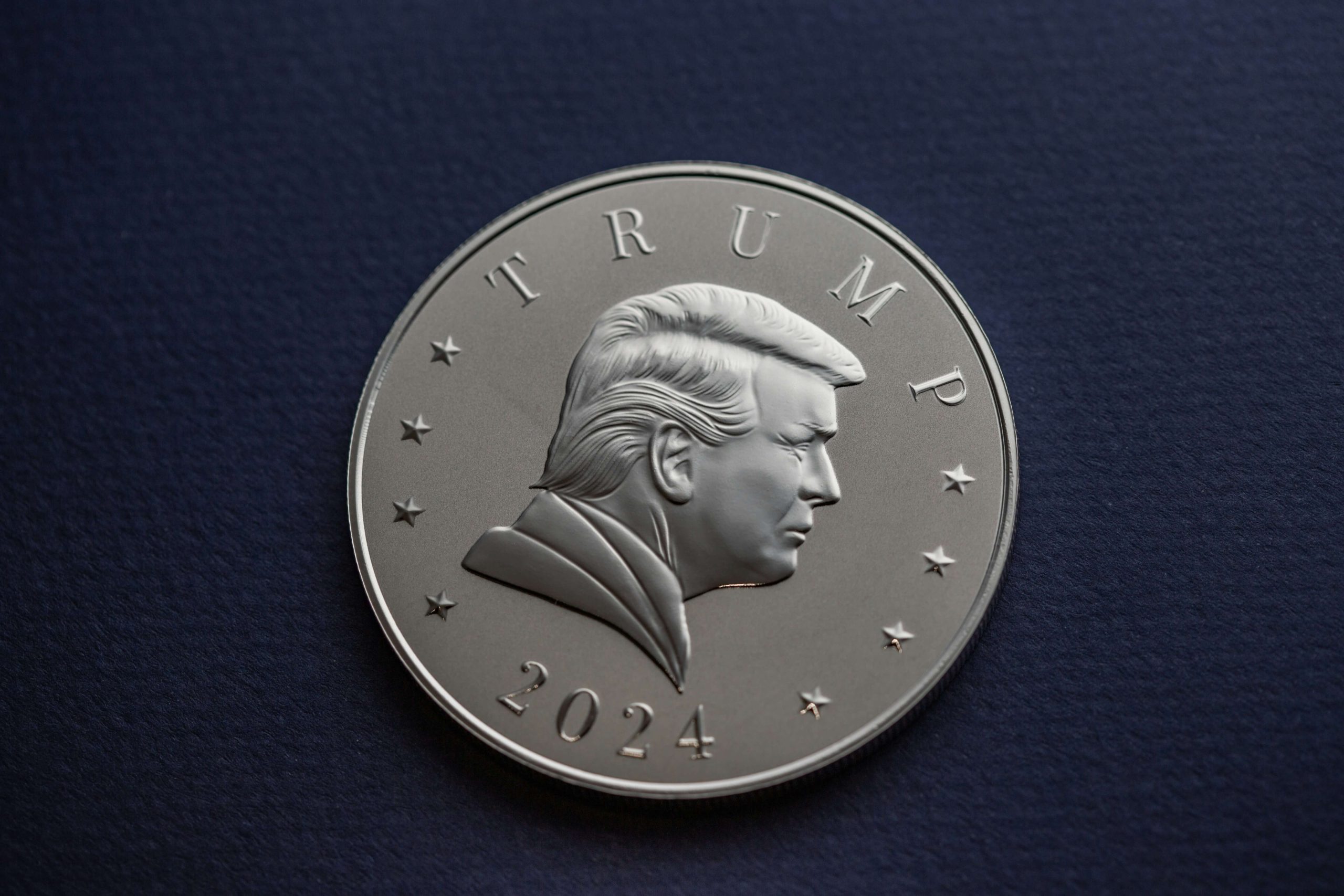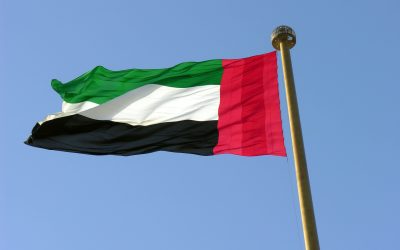As US SMEs prepare for tariffs, Madeira, Portugal’s Autonomous Region, could be the answer. Thanks to the Madeira International Business Centre (MIBC), companies domiciled here are offered significant tax incentives that benefit US SMEs (small and medium-sized enterprises) in the international services, consulting, IT, and logistics sectors. Under current tax law, companies operating within the MIBC are granted a reduced corporate income tax (CIT) rate of just 5% on profits from international activities, provided specific economic substance requirements are met. This low rate (authorized at least until 2028 under EU state aid approvals) is far below the standard Portuguese CIT (20%) and provides one of the EU’s lowest effective corporate tax rates. Even if the regime’s stringent economic substance requirements are unmet, the applicable standard rate is 14.7%.
Key tax advantages within the institutional MIBC framework include:
- 5% Corporate Tax Rate: Applicable to profits from operations with non-resident entities (or other MIBC companies), allowing SMEs engaged in international services, trade, or consulting to dramatically lower their tax burden. Income from Portuguese domestic markets is taxed at standard rates, so MIBC firms typically focus on foreign or inter-MIBC transactions. The 5% rate applies only to qualified foreign-sourced income.
- No Withholding Taxes on Outbound Payments: Dividends paid by a Madeira company to its non-Portuguese owners incur 0% withholding tax as long as the shareholders are not in blacklisted jurisdictions under Portuguese law. Likewise, interest, royalties, and service fees paid from the MIBC company to non-residents face no Portuguese withholding tax. This means an American parent company can repatriate profits or pay foreign partners without extra tax leakage at source, which is highly advantageous for international logistics and service operations.
- Capital Gains and Other Tax Exemptions: Non-resident shareholders also pay no Portuguese tax on capital gains from selling the MIBC company. Additionally, there is an 80% exemption on stamp duties and certain local taxes for transactions involving MIBC companies and non-residents. This reduces costs on documentation, contracts, and property transfers and can ease significant asset or equipment deals that logistics firms might undertake.
- Access to Tax Treaties: Being a Portuguese entity, an MIBC company can leverage Portugal’s network of 70+ double taxation treaties worldwide. US SMEs can benefit from treaty provisions (for example, reduced withholding rates in other countries) and EU Directives, adding legal certainty and minimizing double taxation when operating across borders; this is especially helpful for service and trading companies dealing with multiple jurisdictions.
The MIBC’s tax regime allows US SMEs that are logistics, consulting, or service providers to retain more earnings and price their services competitively. A triangular trade facilitator, for instance, could book profit in the Madeira entity at 5% tax and distribute it to US shareholders with no dividend withholding – an apparent tax efficiency gain, provided the companies meet certain regulatory conditions for substance and compliance.
Regulatory Environment, Company Formation and Substance Requirements
Establishing an operation in Madeira is straightforward and governed by Portuguese/EU law, with specific requirements to qualify for the MIBC incentives. US SMEs (and any other American companies) can incorporate a Portuguese company in Madeira (typically an LDA, aka private limited company) just as in mainland Portugal, with a minimum share capital of around €5,000 and a simple registration process. The key difference is obtaining a license from Madeira’s development authority (SDM) to operate under the International Business Centre regime. This licensing ensures the company will contribute to Madeira’s economy and comply with EU-approved rules.
Economic substance is mandatory – the days of “brass plate” shell companies are over. To benefit from the corporate tax benefits, MIBC firms must demonstrate a real presence in Madeira. This includes maintaining an office, hiring local employees (regardless of nationality), and commencing actual business activity within 6 months of licensing. At least 1–2 full-time employees (who are Madeira residents for tax and immigration purposes) must be hired in the first half-year of operations, along with a minimum €75,000 investment in fixed tangible or intangible assets within the first two years. For more significant ventures, creating more jobs can waive the investment requirement (e.g. six or more jobs removes the capital investment condition). The regime also imposes a tiered cap on the amount of profit that can enjoy the 5% rate, proportional to the number of jobs created (ranging from about €2.73 million for 1–2 employees up to €205.5 million for 100+ employees). These substance requirements ensure that companies genuinely contribute to the outermost region’s economy through employment and investment.
Because MIBC companies are entirely subject to Portuguese and EU regulations, compliance with broader EU/OECD standards is built-in. Madeira’s regime has been repeatedly vetted and approved by the European Commission as a permissible state aid to develop an outermost region, most recently extended through 2028. This means US SMEs in Madeira operate in a white-listed, transparent jurisdiction – avoiding the reputational and legal risks associated with “tax havens.” Companies must maintain proper books, file accounts, and adhere to EU laws (e.g. anti-money laundering rules and economic substance tests). Still, in return, they gain the credibility of an EU base.
Company management and governance for a Madeira entity will feel familiar: corporate law is Portuguese (EU-harmonized). A local manager or director (who could be the hired employee) is required to ensure local oversight. However, American owners retain complete control through share ownership, and there are providers in Madeira to assist with administration. The regulatory environment is business-friendly and politically stable (Portugal is a long-standing EU and OECD member). As one recent expatriate entrepreneur noted, Madeira’s bureaucracy is efficient and streamlined compared to other European locations. As US SMEs prepare for tariffs, establishing a subsidiary in Madeira is not overly burdensome for those opting for it. However, it does entail committing to a tangible presence on the island.
Geographic Position and Triangular Trade Advantages
The archipelago lies southwest of mainland Portugal, geographically closer to Africa but in the same time zone as London and Lisbon (GMT/BST). This GMT alignment means a Madeira office’s workday overlaps well with Europe and the United States. For example, noon in Madeira is morning on the US East Coast and later in the afternoon in East Africa. Such overlap facilitates real-time communication and service delivery across transatlantic and transcontinental operations.
For logistics and service providers, Madeira can function as a physical and temporal bridge between continents. The island boasts an international airport with 50+ daily flights connecting to major European hubs and even some direct flights to the US and Africa. This connectivity allows personnel and goods to move efficiently. A Madeira-based logistics SME could coordinate shipments from “New World” suppliers to African and Asian buyers (or vice versa) with ease, using Madeira as a stopover or coordination centre. The time zone positioning enables the company to manage Asian-origin shipments on the same business day as trans-Atlantic shipments – a valuable feature for triangular trade scenarios that involve multi-leg routes.
While ‘triangular trade’ has a specific meaning in EU VAT law, here we refer to the broader sense of multi-continent trade coordination — such as shipments between the Americas, Europe, and Africa — which Madeira is uniquely positioned to facilitate.
While Madeira is not a free port, its location and connectivity can support legal transhipment or multi-leg routing strategies, helping US SMEs reroute supply chains and service delivery in response to shifting tariff landscapes.
Historically, “triangular trade” refers to multi-region trade flows, and Madeira is well-suited to modern versions of this concept.
Being on EU soil yet close to Africa, a Madeira company can seamlessly contract with clients in Europe and Sub-Saharan Africa. At the same time, its US connection allows it to interface with American partners. The island’s robust telecommunications and growing tech and startup community mean the necessary infrastructure for global business (high-speed internet, co-working spaces, skilled multilingual talent) is readily available. In summary, Madeira’s geography is a strong asset: it offers a base that is simultaneously in the European time zone and marketplace, near the crossroads of transatlantic shipping lanes, and capable of facilitating three-region trade circuits efficiently.
Access to EU Markets and Legal Frameworks
One of the primary motivations for US SMEs to establish themselves in Madeira is to gain a secure foothold inside the European Union. Madeira, as an Autonomous Region of Portugal, is part of the EU internal market and customs union and, therefore, subject to EU law. A company incorporated in Madeira is an EU company enjoying full access to the European Single Market for goods and services. It can sell services or ship products to any EU member state without additional tariffs or regulatory barriers, just as any domestic EU business could.
Being based in Madeira also grants companies the protection and benefits of the EU legal framework. This includes strong legal institutions, enforcement of contracts under EU law, and recourse to European judicial systems if needed. Companies benefit from EU-wide intellectual property rights, data protection standards, and consumer protection laws, which can enhance credibility when dealing with European clients. Furthermore, Madeira entities can utilize EU directives that facilitate cross-border corporate activities – for example, the EU Parent-Subsidiary Directive and Interest & Royalties Directive allow tax-free flows of dividends, interest, and royalties between associated EU companies. A Madeira subsidiary could pay dividends to a parent company in another EU country with zero withholding tax, making group structures tax-efficient.
Importantly, for trade operations, Portugal (and, by extension, Madeira) participates in all EU free trade agreements (FTAs) and trade preferences. Through the EU’s network of FTAs, a Madeira-based exporter might enjoy reduced tariffs when sending goods to partner countries (for instance, EU agreements with countries in Africa or Asia) that a US-based exporter would not benefit from. This could allow SMEs to structure cross-border operations that qualify for preferential treatment unavailable to US-domiciled exporters. If a US SME shifts part of its trading cycle to Madeira, it could re-route exports under EU trade agreements. For example, specific African, Caribbean, and Pacific countries have duty-free access to the EU market for goods – a Madeira company could intermediate those goods and then re-export, leveraging EU trade ties. Additionally, if protective US export controls or sanctions limit particular trade, an independent EU entity in Madeira might lawfully engage in some business that a US entity could not.
Strategic EU Identity: Operating from Madeira allows a US SME to engage with international clients as a European entity — accessing EU trade agreements and avoiding some constraints of US trade policies.
One concludes that establishing in Madeira opens the door for EU opportunities:
- Unfettered intra-EU commerce,
- Participation in EU public procurement and programs, and
- Alignment with a large bloc’s trade policies rather than being confined to US-only frameworks.
In addition to all the above, Madeira’s inclusion in the EU means adherence to high compliance standards, providing business certainty. US SMEs can be confident that operating in Madeira means stable rules and treaties.
The EU’s oversight, due to being a state aid regime, has also ensured MIBC’s legitimacy: by meeting EU requirements, Madeira has avoided tax-haven blacklisting and continues to offer a reliable platform for international SME businesses. If relevant, access to dispute resolution mechanisms like EU arbitration for double taxation issues and the ability to passport financial services or other regulated activities across Europe are additional legal framework benefits of an MIBC company.
Relevance Amid US Tariffs and Protectionist Shifts
In 2025, we have seen a resurgence of protectionist trade policies, including US-imposed tariffs on various imports, and trade partners have responded in kind. This climate of trade barriers and “America First” policies can challenge US SMEs trying to operate globally. In this context, using Madeira as a base can help mitigate some risks of tariff wars and protectionism. A US company gains flexibility in its supply chain and market identity by having an EU-based subsidiary.
For example, if the US is to restrict exports of certain services or enforce “Buy American” rules, the Madeira entity can independently bid on international projects as a European provider, virtually unaffected by US domestic rules. More than tariff circumvention, presence in Madeira diversifies the business’s geopolitical risk. It’s a form of hedge against uncertain US trade policy.
The World Economic Forum noted that sudden tariff announcements could “upend traditional trading relations, creating significant uncertainty in the global economy.” Such uncertainty can devastate a small or mid-sized firm if all operations are US-centric.
By contrast, running part of the business from Madeira spreads risk exposure: the company can continue earning revenue through its EU branch even if US trade with a given region freezes up. MIBC’s tax savings can also offset some of the financial strain caused by tariffs. A logistics SME facing higher costs due to import tariffs might preserve its margins thanks to the 5% tax regime on its international profits in Madeira.
Protectionist shifts have also led some countries to favour local or regional partners. A US logistics company might find that certain governments or clients prefer dealing with an EU-based entity for political or compliance reasons. By operating via Madeira, the SME presents itself as a European company, potentially opening doors that might be closed to American firms during times of US protectionism. As such, Madeira or the MIBC platforms offer US SMEs a degree of agility in a protectionist era: they can optimize the routing of goods to minimize duties, choose the most advantageous jurisdiction for each leg of trade, and maintain access to key markets under either US or EU identities as needed. This agility can be crucial when tariffs and trade policies are in flux.
Viability and Competitiveness of MIBC for US SMEs
Given the above, unlike offshore jurisdictions, Madeira’s onshore regime operates within the EU frameworks, granting full access to the European Single Market and adherence to international compliance standards. Companies don’t have to trade off legitimacy or market reach for corporate tax benefits – they can have both.
From a strategic standpoint, Madeira’s location and infrastructure enable an effective servicing of tri-continental markets (Europe, Africa, and the Americas) in real-time. That is why SMEs involved in complex logistics, tradable services (namely IT) or multi-country trade have used Madeira as a coordinating hub to streamline operations and reduce customs costs. Branding itself as an EU entity can also be advantageous in navigating an era of trade protectionism, providing flexibility to respond to tariff changes and geopolitical shifts.
However, weighing some important considerations is important: participating in the MIBC requires a real commitment to Madeira (hiring local staff, maintaining an office, and meeting the substance criteria). Otherwise, a CIT of 14.7% applies. For many SMEs, these costs are manageable given Madeira’s relatively low wages and cost of living (labour costs are among the lowest in Western Europe), but it does require long-term vision. The current tax benefits are assured until 2028; while it is likely that the EU will renew or replace the regime in some form (as has happened in the past and as required under the Political-Administrative Statute of the Autonomous Region of Madeira – its “mini-constitution”), companies should stay adaptable to any changes in the incentive framework.
Whether coordinating shipments between the Americas and Africa or re-exporting goods under EU agreements, MIBC-based SMEs gain tax efficiency and global trade positioning agility — crucial advantages in today’s fragmented trade environment.
The above means that for US SMEs in services/logistics – particularly those managing triangular trade operations or needing a European beachhead – Madeira’s International Business Centre offers a compelling package of tax efficiency, strategic location, and market access. As US companies prepare for tariffs, those opting for the MIBC would be at the crossroads of global trade with minimal tax drag and robust legal backing. Under current global conditions of uncertain trade policies, having such an EU-based springboard can be a long-term prudent move. If the company’s business model can support the substance requirements, the MIBC stands out as a strong option to maintain and expand international business, combining the stability of an EU jurisdiction with the benefits traditionally associated with offshore centres. The evidence suggests that Madeira can be a gateway for US SMEs to thrive in Europe and beyond, turning global challenges into opportunities.
The founding of Madeira Corporate Services dates back to 1996. MCS started as a corporate service provider in the Madeira International Business Center and rapidly became a leading management company… Read more




